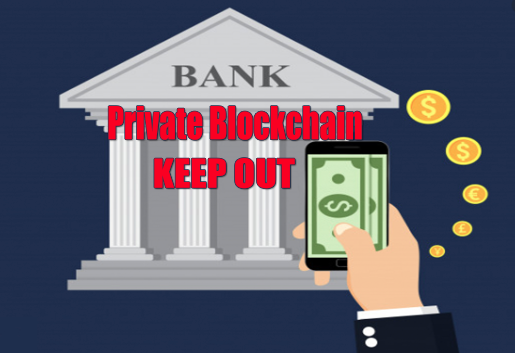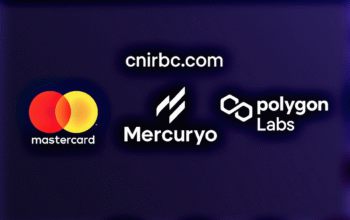“Life’s better when we are connected, the right relationship is everything,” and “real change”. Any of these taglines sound familiar? They are the most important words that the 3 major banks in the United States want their customers to know and remember. Customers are the backbone of the banking system and banks are about making money. For many years banks have utilized the SWIFT international payment network, as it is one of the largest financial messaging systems in the world. SWIFT enables monies to be transferred from one country to another and can take from 2-5 days to complete the transfer of funds. The cost to the customer can be a flat rate, or a percentage of the amount being transferred. However, blockchain technology is disrupting the entire global monetary system. Banks are faced with the decision of adapting to public blockchain technology or disregarding it for a private one.
Private Blockchain costs and risks
Private blockchains are controlled by a single entity with a mandate to decide on what can and cannot go on the ledger. Any organization that has adopted private blockchain technology has complete control over it. Subscribers are appointed within the company and permitted access to specific data authorized by the network creator. Access to data is significantly restrictive. Conclusively, the network creator adopts the regulations and decides on the mechanism of access. In comparison, public blockchains are decentralized issued ledgers and can be accessed beyond the control of a single organization.
Although costs will be considerably higher for banks to maintain a private blockchain, they are resolute in satisfying their demand for continued privacy. Consistent with banking practices in times past, these costs will most certainly be passed on to the consumer. Private blockchains are not supported as public ones that use levels of consensus for validation of the transaction. Considering this is unchartered territory for the banking system with unforeseen hazards, securing a private blockchain has a tremendous level of risks. A private blockchain system could be open to stolen assets, exposed consumer data and compromised smart contracts.
Private Blockchain Governance
Private blockchain allows for in-house governance, as there is no outside oversight to ensure accountability and fiduciary wellness.The bank has complete control with every decision and action, assured that there is no interruption. For decades, these ways of conducting business allows for continued privatization of information that should be available to public entities. Bank officials who govern generally come from within the banking institution, such as, Former and current banking executives. As a result, the executive pool of selection remains small and the opportunity for new governing standards are minimal.
The banking institution should recruit FINTECH (Financial Technology) educated individuals who understand blockchain technology. They will mentor bankers to know the benefits of blockchain governance.
Our investigation reflects that banks are facing a serious dilemma. Either they accept a public blockchain and all that it encompasses, or continue to develop private blockchains that are sure to have nebulous consequences. It is clear from our research that private blockchains will not be cost effective. As banks continue to exist, their future depends on the decisions made today.
OPED Written by Sheree Edwards, Silicon Valley Forensic Accountant & Corporate Executive Assistant, CNIR Staff Reading Material: https://www.zurich.ibm.com/dccl/papers/gramoli_dccl.pdf



